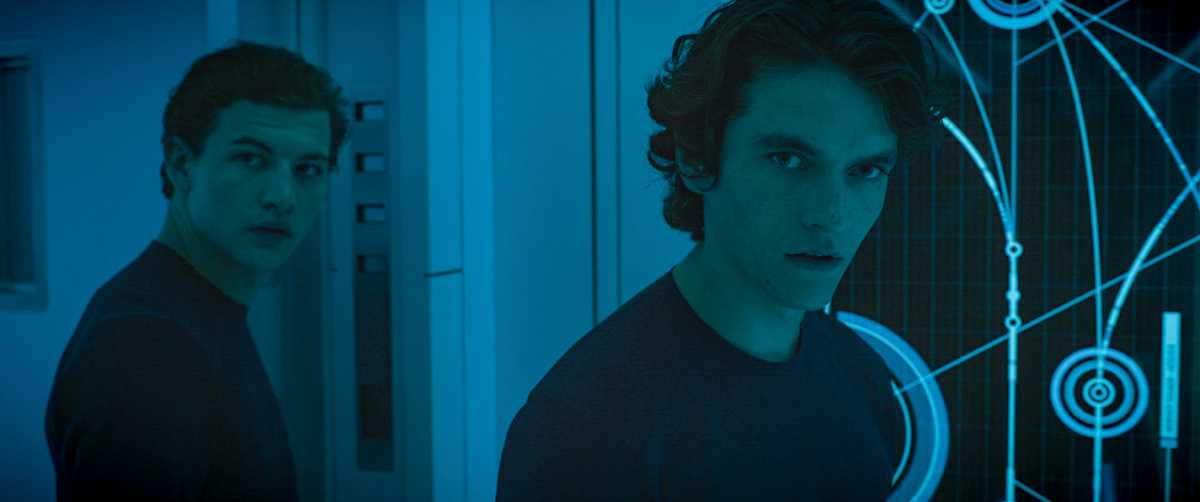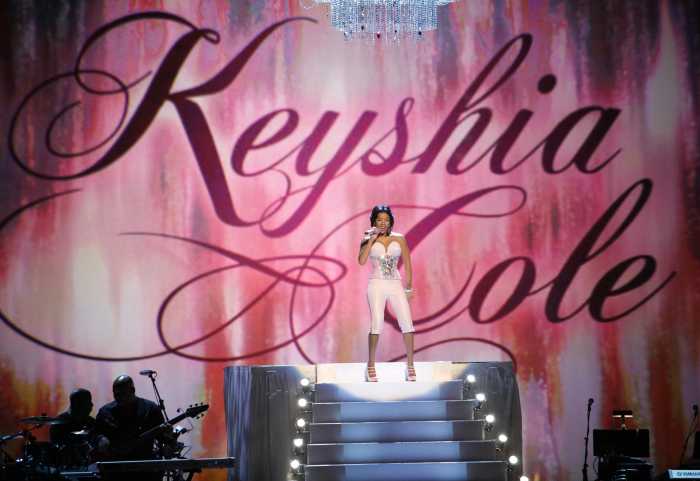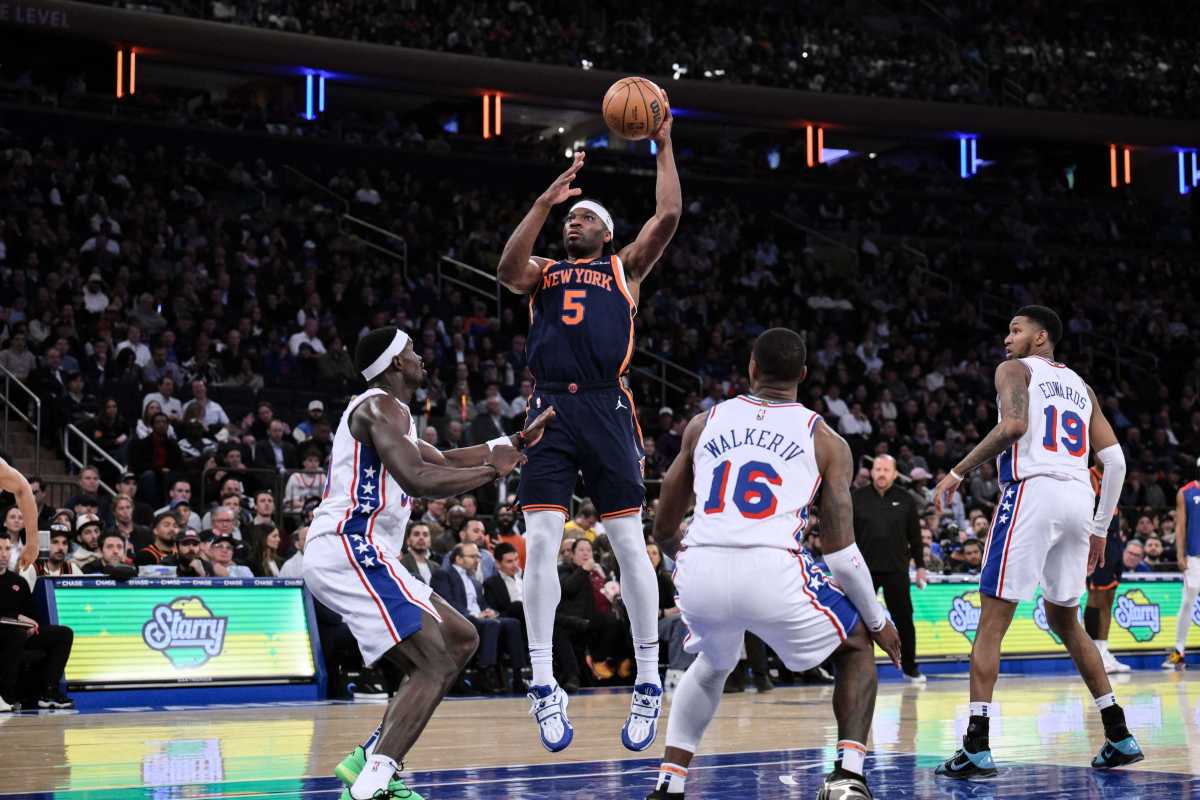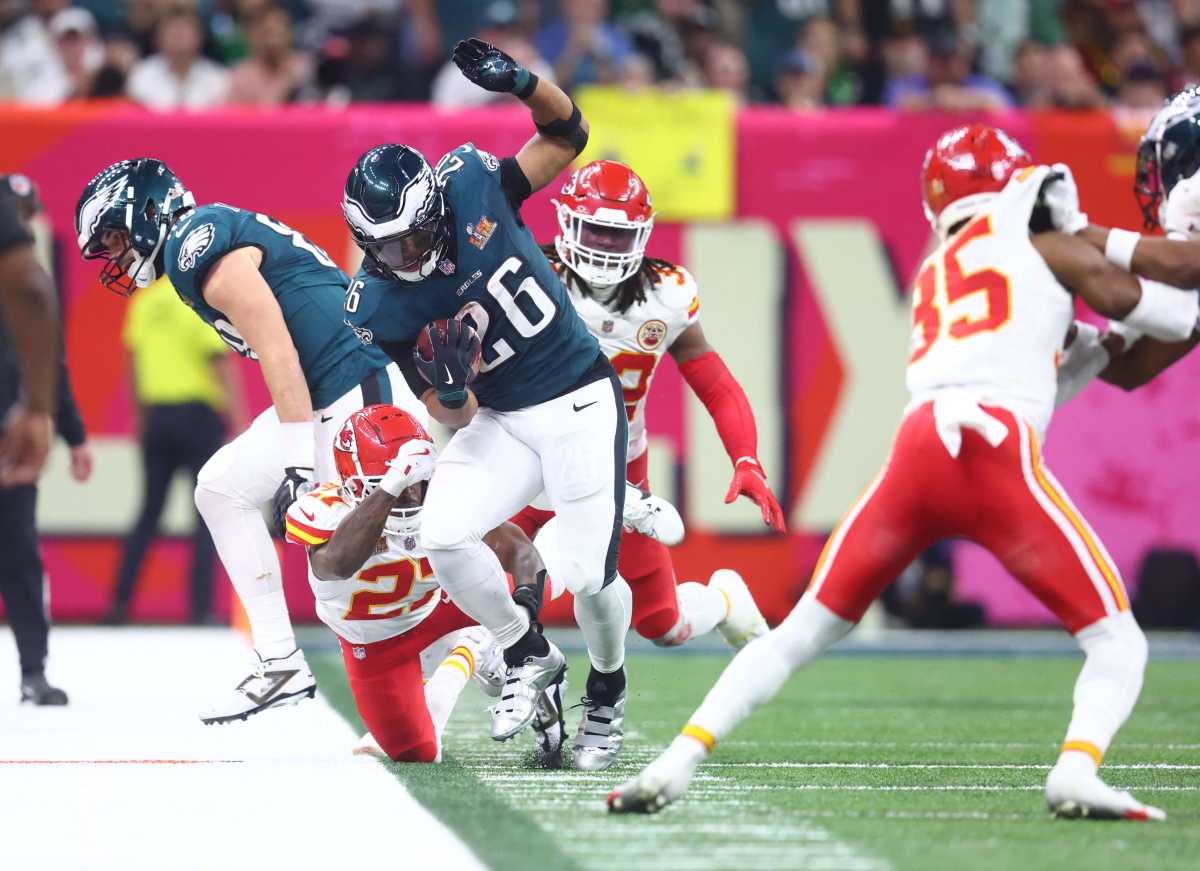Sci-fi films bring out-of-this-world stories to the screen, but they also are typically an examination of human nature, or so, that’s the way writer/director Neil Burger sees it. Burger, who has directed a variety of films in the past taking very human emotions into ethereal plots (such as ‘Divergent,’ ‘Limitless,’ and ‘The Illusionist’), has once again focused a feature on the actions and reactions of people with his latest film, ‘Voyagers.’ But this film hits a bit differently.
The film, which stars Colin Farrell, Tye Sheridan, Lily Rose-Depp and Fionn Whitehead, focuses on a group of teenagers, who from birth have been bred and trained for an imperative mission to save mankind. The mission requires the group of 30 voyagers to live their lives on a spaceship en route to a new planet that humans can once again live on. The mission takes a turn when the voyagers realize everything is not what it seems.
After going off a drug that is labeled ‘the blue,’ feelings of paranoia, anger and desire ravage the halls of the spaceship with most of the mayhem coming from Whitehead’s character Zac. Whitehead plays the “bad guy” of the film, but the reasoning behind his animalistic behavior is something audiences can actually relate too… especially after living through a pandemic ourselves.
Whitehead sat down to discuss more on his complex character in ‘Voyagers.’
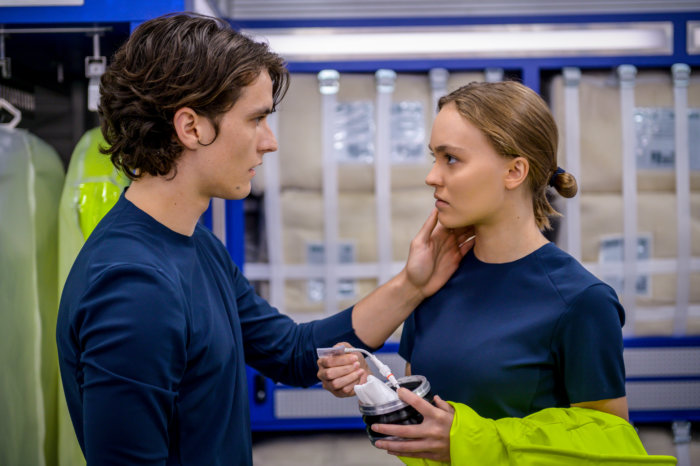
What was it about this project or character that interested you?
When I read the script, I really responded to it straight-away. I really loved the way all of the characters, but especially Zac, were written. His character arc is sort of that he reverts back to this primal sort of animalistic state. I thought that was a really interesting thing to put in such a claustrophobic environment… Also, I just loved that it’s such an epic theme—space travel and voyages to other planets that are inhabitable. But what I think Neil has really nailed in the script for this and in the execution as well, is that he’s taken a very intimate piece of that epic story and just sort of blown it up and made this script that feels very close and personal.
With Zac, out of everyone in this group of Voyagers, he definitely has the most extreme reaction. What do you think motivates Zac? What do you think is going on underneath?
Neil and I discussed that a lot before we started filming. We talked about Zac and about how his emotions are always close to the surface anyway. So when he’s on the blue he’s obviously subdued and everything, but the minute he gets off it, it doesn’t take long at all for all of that stuff to come to the surface. I based a lot of his more volatile pieces of behavior and his aggression and his kind of violence as coming from a place of fear and pain, as I think most anger and violence does.
In the script there’s a brief moment where it’s him when he’s 7 and Richard [Colin Farrell] is talking to him and he says I’m scared, and Richard says you’ve got nothing to be scared of…But I think the lack of support when he’s that age, and the lack of care that he’s shown means that these feelings of fear and abandonment are never really dealt with. Over the years, they sort of fester and compress into this resentment and that sort of applies to the rest of the film really.
Zac’s big thing, to cut through all of the big stuff that he does, what he’s really looking for is connection above everything. But, none of them have ever been shown in that way how to show love, how to show caring and everything else… So, I think it’s like this obscure idea to him and this obscure thing he’s heard of or he’s heard whispers of from some of the scientists who raised him, but he’s never felt it… but it is something that he wants.
Do you think that’s why the rest of the group then reacts so violently at times during the film? Was the repression of feelings the cause?
I think it’s a big mixture of stuff. A big part of it is that they have no comfort, they’ve been raised to function almost as parts of a machine or parts of a mission, they’ve got nothing to fall back on. Even in terms of the set, it’s this stark and sterile background and there’s a very uncomfortable feeling. There’s no way to ground yourself when those feelings of paranoia and fear come on… they’ve got nothing to cling onto. So, Zac does what dictators have done for centuries, which is to use fear to manipulate and gain power. I think it’s something that we see so often in the news, fear is a much more instant tool to use. Rationality and reason might take the day in the end, but fear is a much more immediate reason to do something and it gets people on board a lot quicker.

What was the most fun part for you to play the “villain” of the film?
The whole thing was really fun to be honest. It’s completely true that you do get to have a lot more fun when you play the bad guy. You just don’t have to hold back as much with your choices. When you’re playing a more reasonable character, you’re constantly checking your choices and second-guessing whether you’re going too far or overacting or pushing something too much, but, with a character like Zac who is such a Machiavellian kind of guy, you get to just have a lot of freedom to make big choices. The words kind of do it all for you as well. That’s another reason why I loved the script so much, I thought the dialogue and Zac’s big monologue where he’s trying to convince people, it was compelling to read. It was all a lot of fun, but selfishly those scenes in particular were really fun to film.
Did that leave a lot of room for you to improvise as well?
Yes and that was another great thing about Neil, he’s very collaborative. So, when we’re sort of rehearsing the scenes and choreographing, he would say if you’ve got an idea, go ahead and go for it and we would go from there and see what works with the camera and everything else. That was a real gift, because it can be [stifling] sometimes when you have to hit a certain position and make sure everything comes from this place when you naturally want to do something else. Those big scenes, Neil was very open to hear what my thoughts were.
This film examines human nature, specifically the need for connection. Do you think audiences will take more away from the film after living through COVID?
I think so. We couldn’t have foreseen what happened, but the claustrophobia of the film and the pressure cooker kind of nature of it is much more relatable now to everyone. Everyone has been stuck indoors going a little crazy, so I think there’s a certain amount of catharsis in seeing a group of teenagers take it all the way so that you don’t have too. But also, one of the things I really took from it, most of the characters over the course of the film come to the realization that they need each other to survive, they need to rely on each other. That’s something I hope that people take from it… that relying on each other is a strength. To be able to put faith and trust in each other as a community and society is a good thing and it’s something we need in order for our survival.
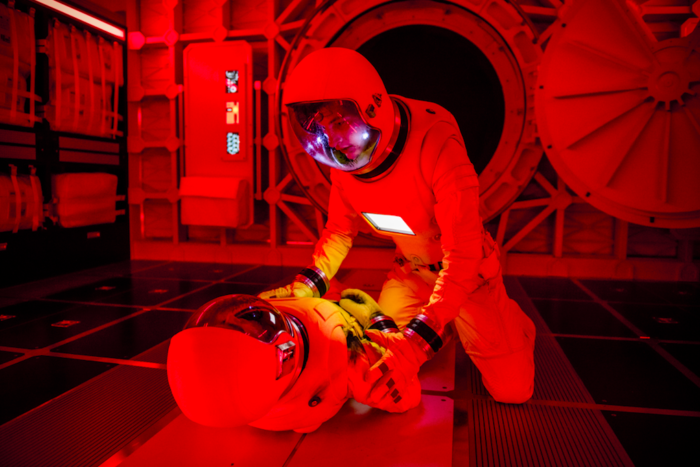
‘Voyagers’ will be released in theaters April 9.



